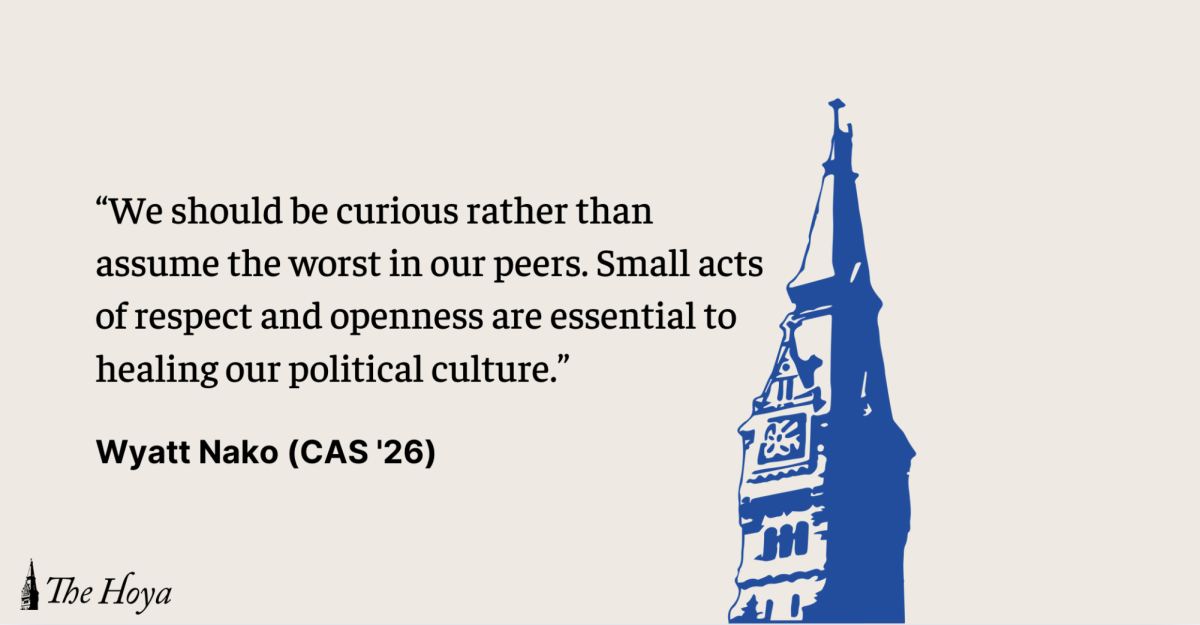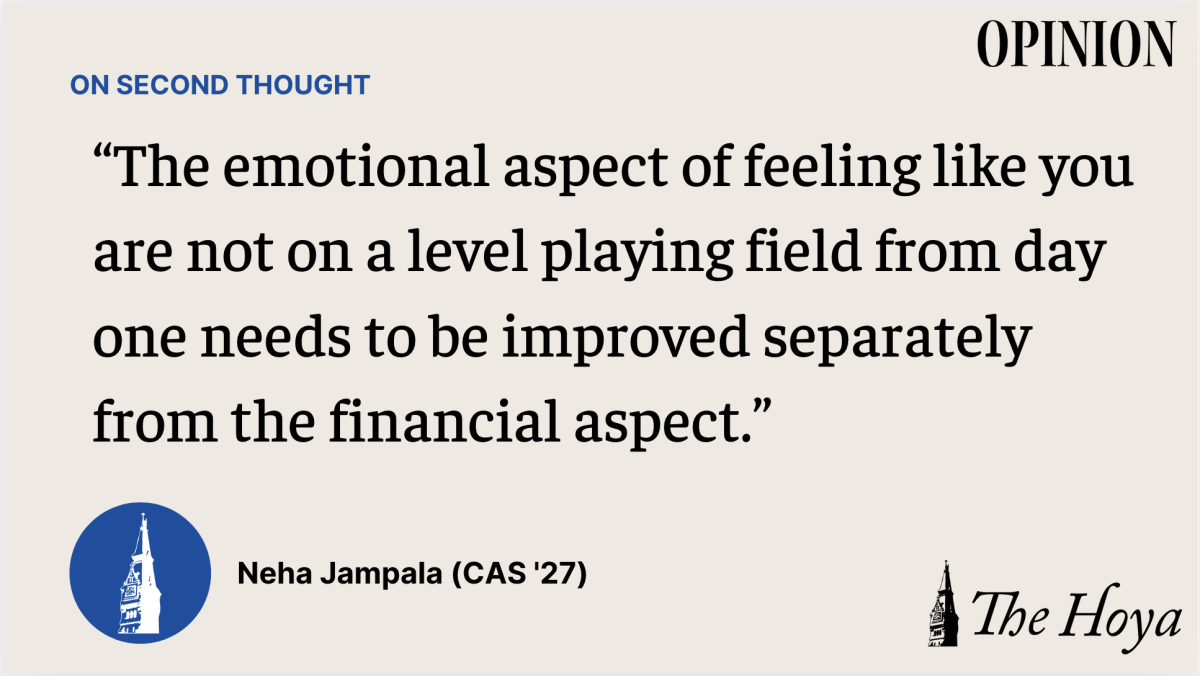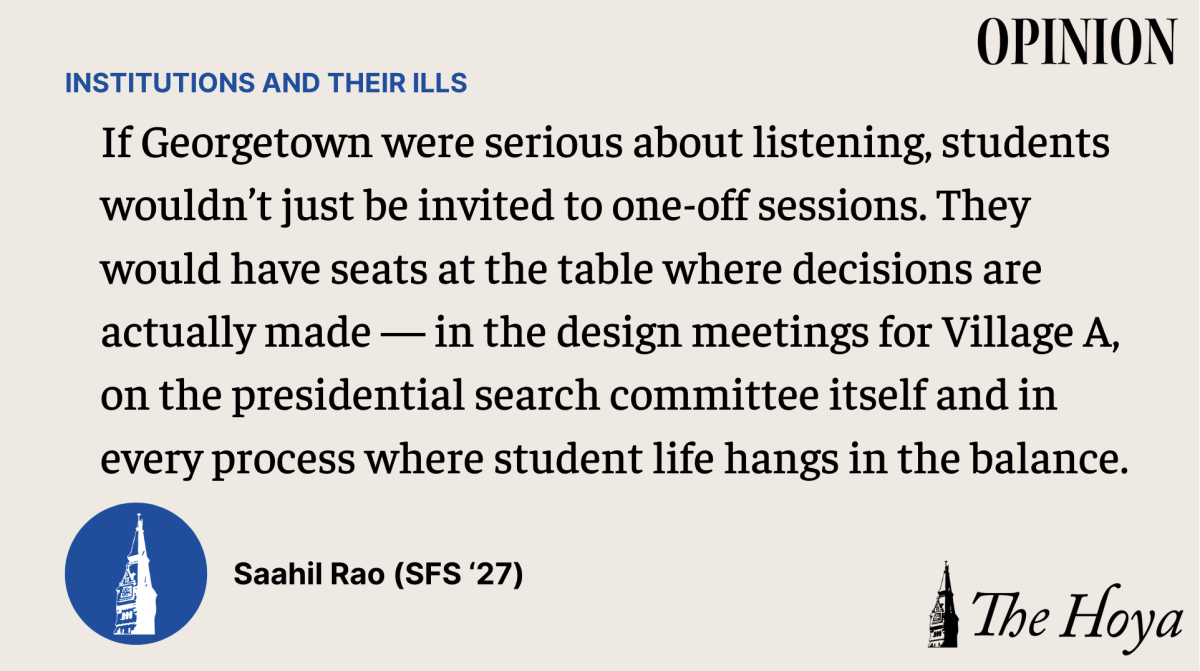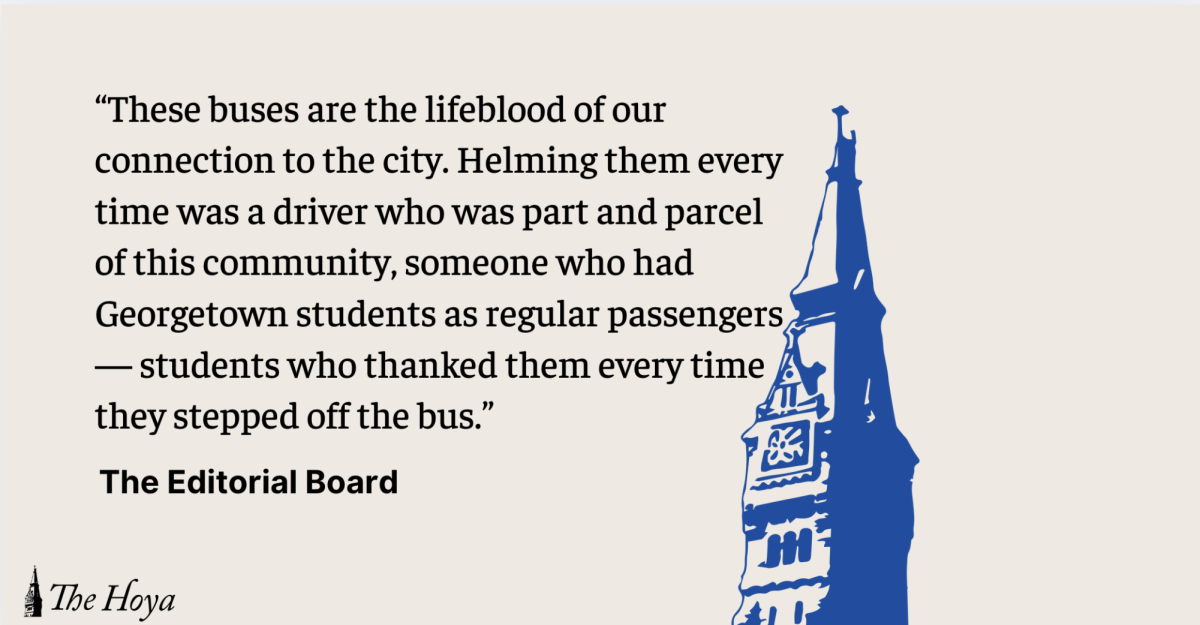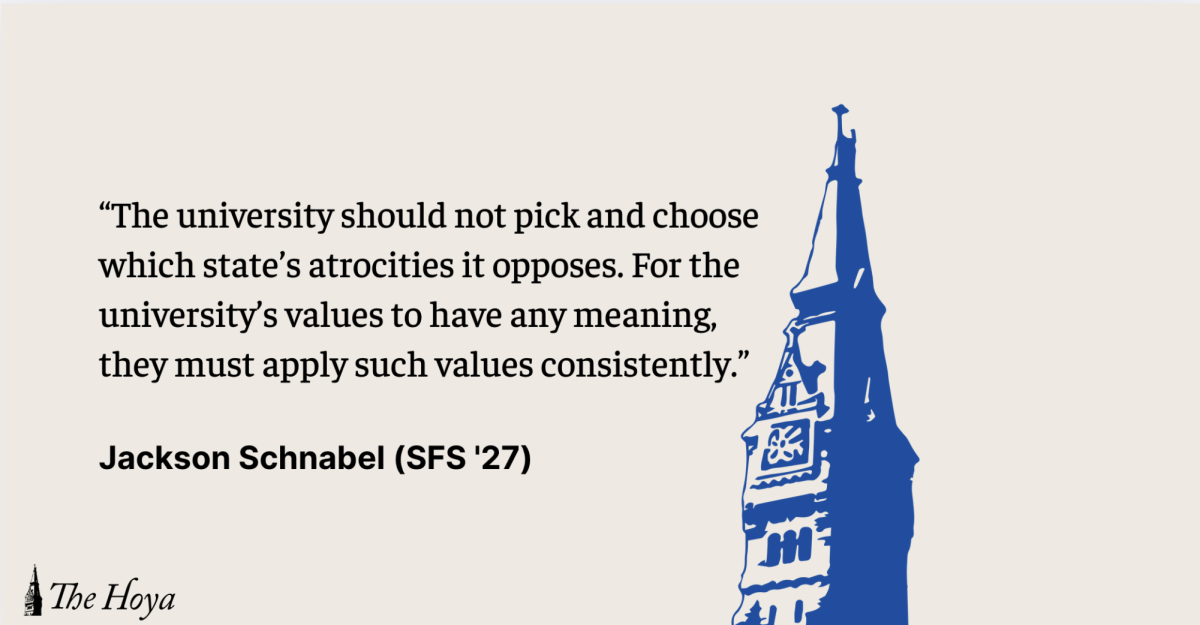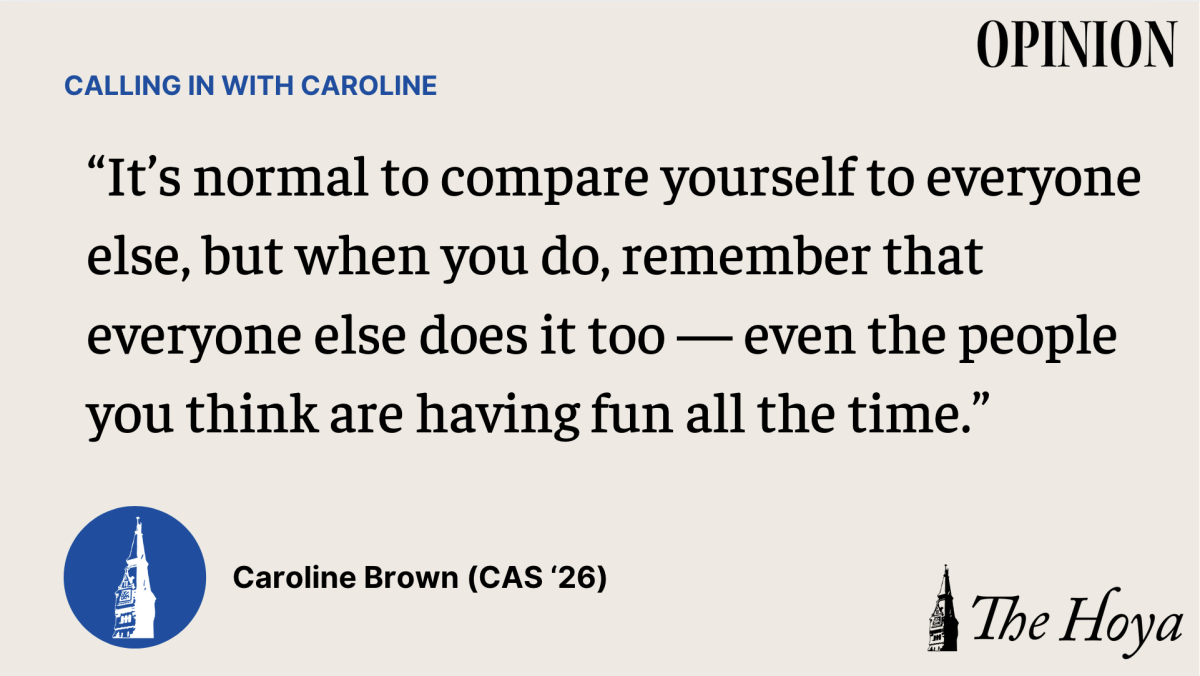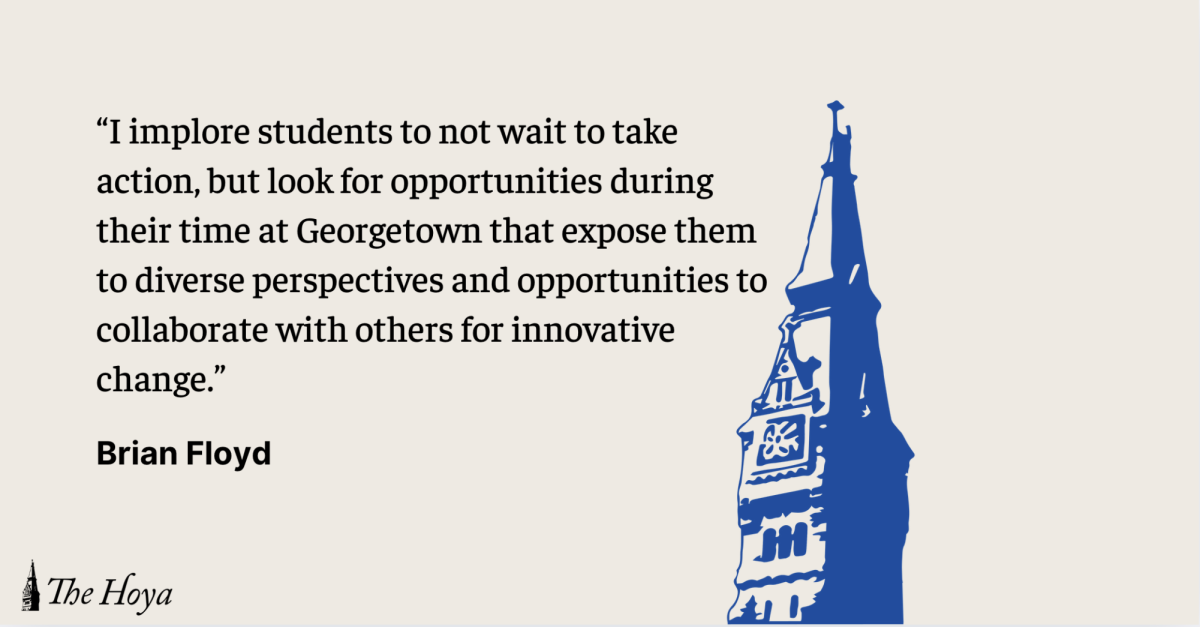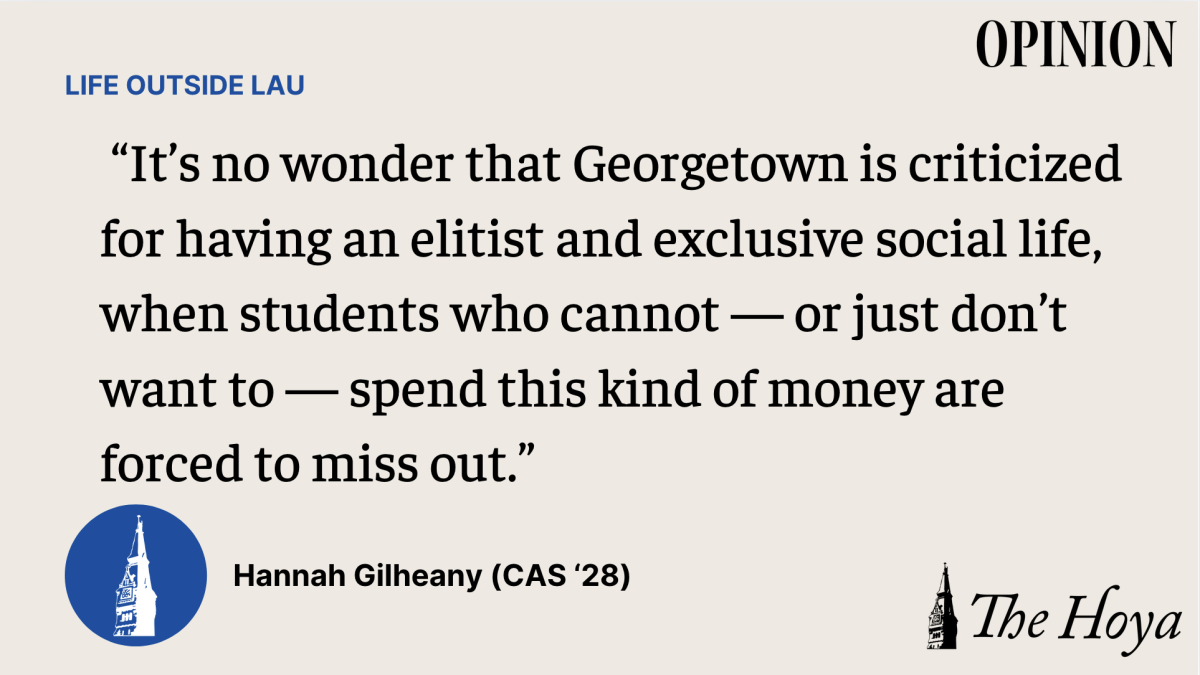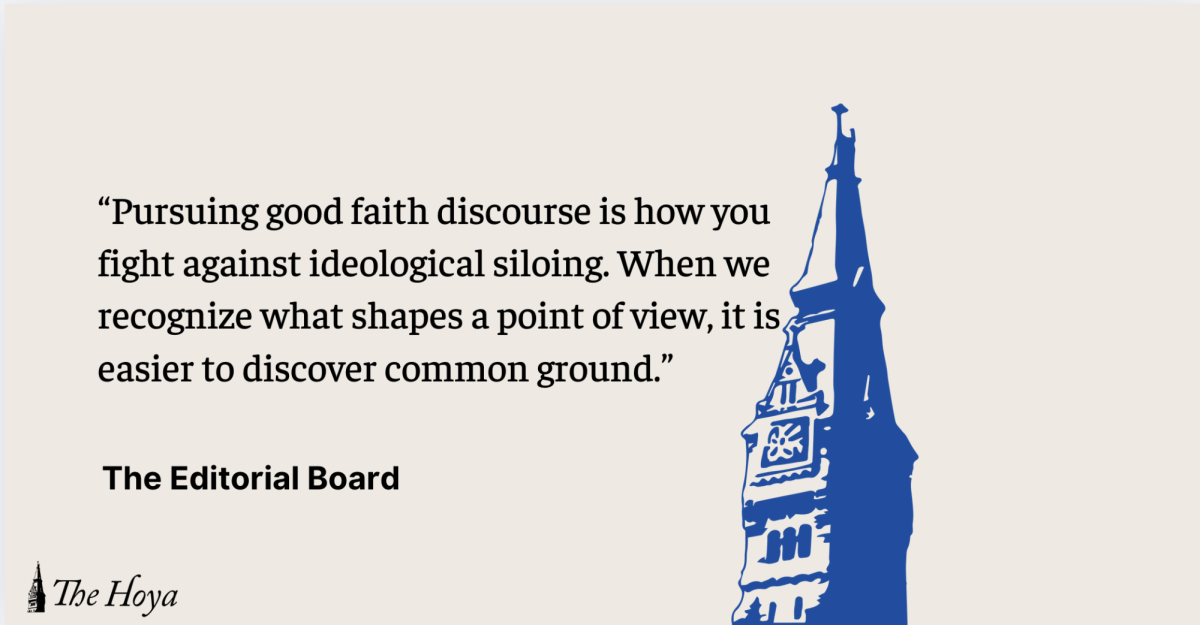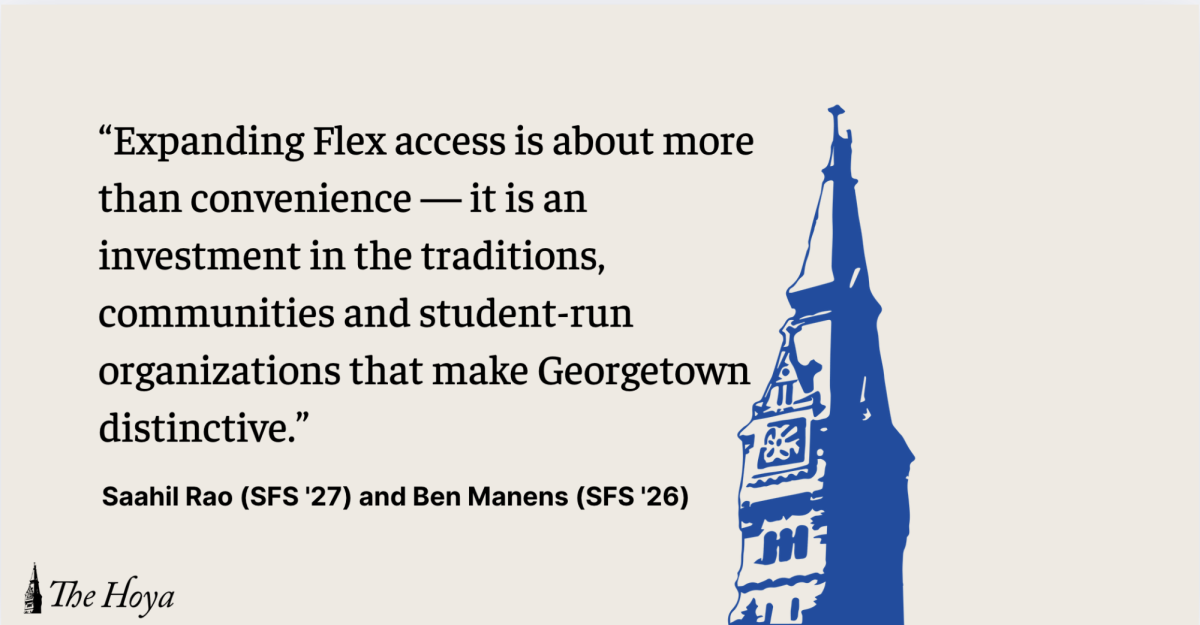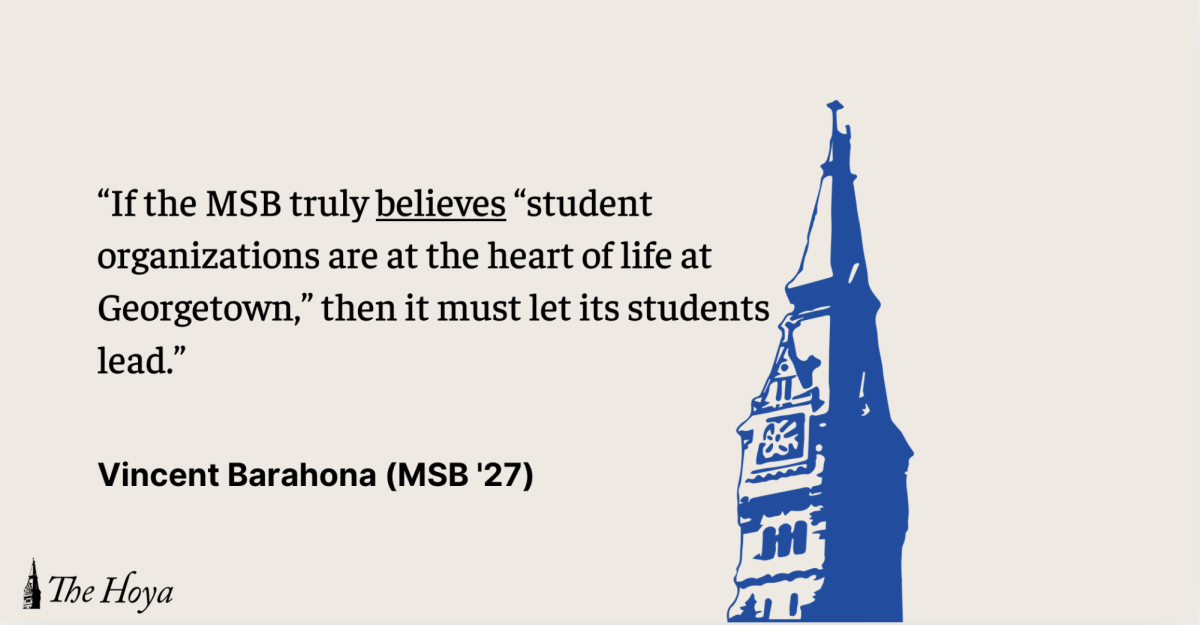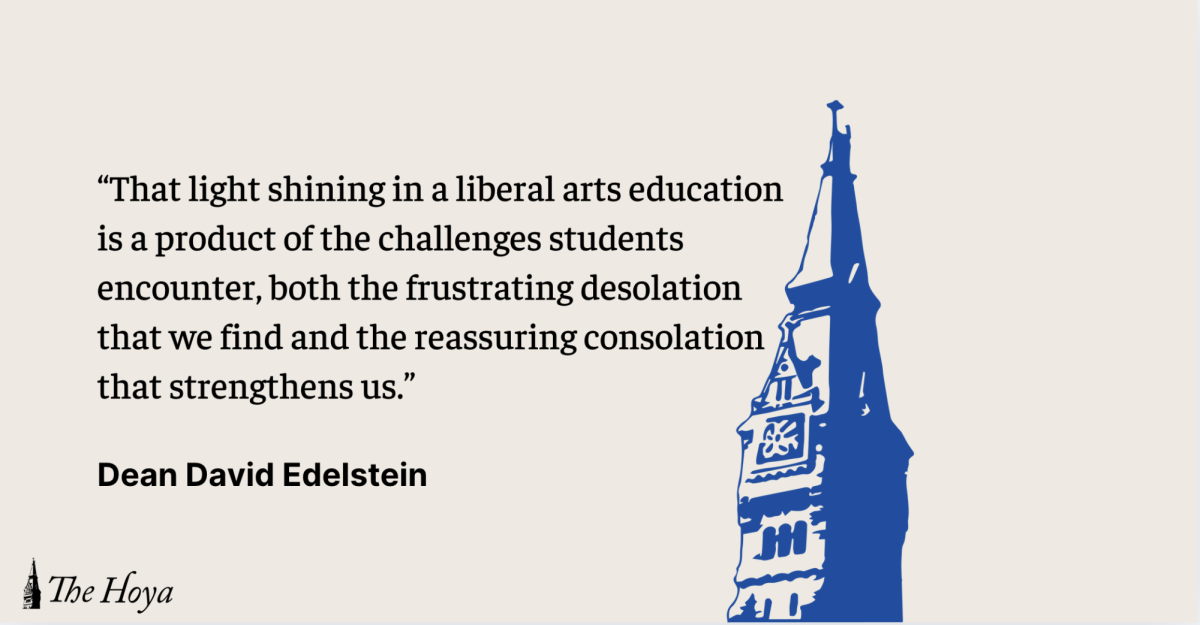This week marks International Israeli Apartheid week, an international series of events taking place in late February and early March that aim to raise awareness of the human rights issues at stake in the Israeli-Palestinian conflict. The Georgetown University chapter of Students for Justice in Palestine will hold a number of events this week to promote dialogue about this topic, and call attention to what they believe to be Israeli apartheid.
As an active member of J Street U, a pro-Israel, pro-Palestinian, pro-peace group on campus, I appreciate this invitation to campus dialogue. SJP is highlighting the issues of political and social oppression and violence that J Street seeks to end through a two-state solution.
However, SJP’s use of the term “apartheid” is problematic for a couple of reasons. Mainly, this term shuts down the productive conversation they are trying to start. While the Israeli occupation of the West Bank certainly resembles the South African case in some respects, J Street believes that this word is overtly polarizing and oversimplifies a nuanced issue into a black-and-white judgment that demonizes one participant in the conflict over the other.
What is happening in the Palestinian territory is not an apartheid — it is occupation. This situation is brutal and ugly and has involved many human rights violations that must end.
While it is unacceptable that many Palestinians have limited access to basic resources and restrictions on travel within their own territory, it is important to highlight the distinctions that differentiate the Israeli-Palestinian case from that of South Africa in the 20th century. Israelis are not trying to impose a systemized racial oppression within Israel proper. Arabic is an official language of Israel, Arabs and non-Zionist parties can run for seats in the Israeli parliament, Arab Justices serve on the Israeli Supreme Court, and the Israeli education system allows the Arab sector to design its own curriculum.
While many Israeli Arabs still face discrimination in Israel, these rights would not be afforded to the black community in the case of South African apartheid. While I recognize that Israeli democracy is flawed and that the occupation of the West Bank is unacceptable, Israel has not annexed the region. This context fundamentally differentiates the occupation from the conditions of apartheid. The injustices perpetrated in the West Bank are the result of an enduring conflict over land.
These distinctions characterize the Israeli occupation as different than an apartheid state, but we must still address the ongoing occupation. It is unacceptable that Israeli citizens in the West Bank live in democratic freedom while Palestinians suffer military rule and brutal human rights violations.
We must take steps and work together to end this occupation, starting with promoting dialogue that embodies the nuance of this conflict, and embraces both narratives at stake in coming to a permanent status agreement. Speaking about the conflict in more diplomatic terms that do not demonize one side but rather hold both Israelis and Palestinians accountable for their actions and acknowledge both sides’ claims to the land will allow us to come to constructive conclusions. It will also foster an environment where we can move forward towards resolving the issues of borders and settlements, resettlement of refugees, national security and claims to Jerusalem that must be addressed to build a permanent status agreement.
However, dialogue alone is not enough. While J Street aims to provide a space for productive discussion, it is imperative that we look forward to tangible steps that we can take as pro-Israel, pro-Palestinian, pro-peace Americans to end this occupation. One way to agitate the status quo is to critically examine how much American funding for Israel is implemented over the Green Line. While some may be disheartened after the failed 2014 peace talks, it is imperative that we educate ourselves about upcoming events such as the Israeli elections, the outcome of which will undoubtedly shape Israel’s foreign policy and dictate the size and scope of the occupation in the future.
The possibility of a two-state solution is still relevant and viable, and we must promote constructive dialogue on our campus as well as raise our consciousness of key events and policies that can change the status quo in favor of peace.
J Street U Georgetown invites the student body to ICC 108 this Wednesday, March 4 at 8 p.m., for an open dialogue about the validity of the apartheid claim and the ways to improve the reality on the ground. Let’s foster a productive dialogue on this campus that lends itself to peace, rather than exacerbating misunderstanding.
Emily Paragamian is a junior in the School of Foreign Service.








